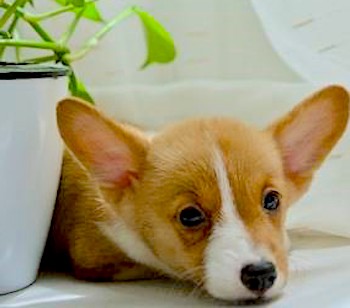
By Hali Emmons, columnist
With Quarantine 2020 still in full effect, many of us have turned to sprucing up our home interior to meet the needs of our isolationism. This may include home renovation, new furniture, a fresh coat of paint, or buying some houseplants. Choosing new greenery to put in your home is fun and exciting, but if you have pets at home you must make sure the new plants are going to be safe to be around your furry friends.
You are at the store and you spot the most beautiful greenery you’ve ever seen, but you aren’t sure if they would be safe to bring home to Fido or Fluffy. What are the safest options to choose when shopping around?
One of the safest choices of houseplants are spider plants. They are non-toxic to both cats and dogs and look great in most any place in the home. Another good option would a Boston fern. Ferns, except for the Asparagus fern, are a wonderful addition to a home as they add a large presence and are safe for both your canine and feline friends.
If you are looking for smaller tabletop greenery like succulents, you must make sure it’s safe for mischievous cats who are always looking for trouble. Succulents like aloe, jade, kalanchoe, and snake plants are very toxic and should be in animal-free spaces.
Also, be careful when different holidays roll around when seasonal specific plants are being sold everywhere. Poinsettias, lilies, holly and mistletoe are all extremely poisonous to your pets, especially cats.
When picking out plants to add some life to your space, always do your research. A great start is with the ASPCA website to see if your favorite plants are on the list of toxic plants.
Now, the difference between toxic and non-toxic plants for animals is the severity of toxicity they are exposed to. Most any plant will give your animal some stomach troubles. The term non-toxic in this context means the exposure to the plant is not life threatening.
A toxic plant encounter to an animal will present as lethargy, vomiting and diarrhea. If you think your animal has eaten a toxic plant, identifying it will help with your vet’s course of treatment. So, take some time to look around your house and see if your current houseplants could be harmful to your pets.
While we are all trying to stay safe and healthy in our homes as much as possible, our pets are soaking up all the love and attention they’ve been receiving. However, if you decide to titivate your spaces to make quarantine a bit more bearable, always take the time to make sure your home is not only safe and happy for you but your pets as well.
Contact the Page County Animal Shelter at (540) 778-2101
•••
RELATED ARTICLES
Waggin’ Around the Valley: Dog days of summer
Waggin’ Around the Valley: What do animal shelters do in a pandemic?



Be the first to comment